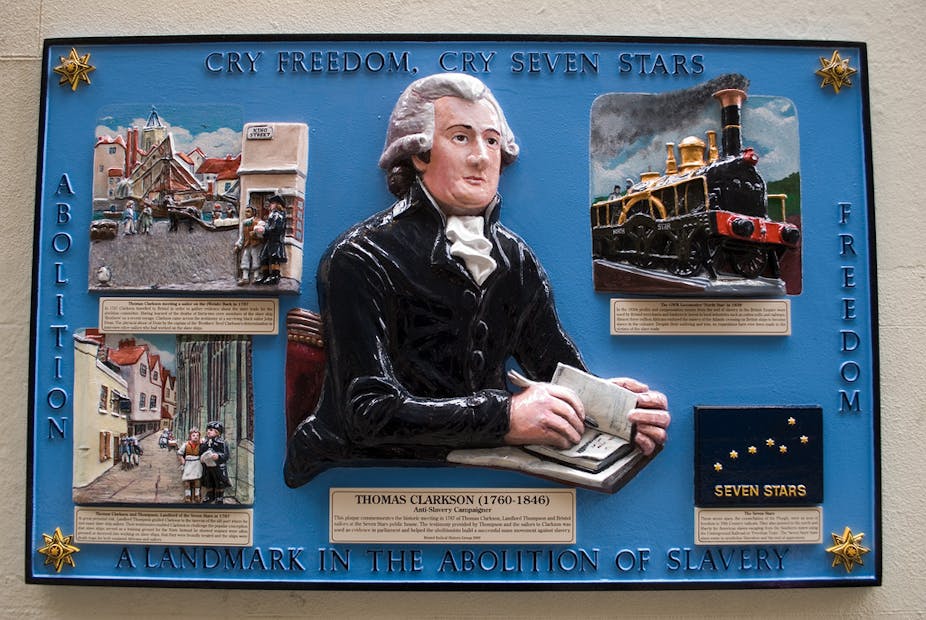Should the descendants of slaves receive compensatory payment? This idea has returned to the US since the publication of a major essay in The Atlantic setting out the case for reparations.
Here in the UK, the idea of reparations for the slave trade got a public airing just once, back in 2007 when the then Archbishop of Canterbury said the Church of England should contemplate paying for its role in the slave trade. But nothing was done. Then prime minister Tony Blair said he felt “deep sorrow” for Britain’s role in these incidents but he would not apologise.
The following year I organised a conference in London to consider the question of British reparations. Several international speakers put forward their notion of what reparations should be and some of the problems a claim for reparations would face, from litigation, to restitution, from whether slavery was legal at the time, to the moral claim that it was a crime against humanity.
Many find it incredible that there has been no litigation for such a brutal and lengthy series of incidents. The British argue slavery was not a crime at the time, and thus reparations based on legal wrongdoing are not valid. However international law expert Nora Wittmann says the UK argument doesn’t add up: chattel slavery – treating people as animals and property – was a crime at the time.
In fact, slavery constitutes a crime against humanity, as defined by the Nuremberg war crimes tribunal. The Unesco-organised World Conference against Racism, held periodically since 1978, agrees, stating that slavery was a crime against humanity and should always have been so. Certainly the slaves knew it was wrong.
So if slavery was a crime against humanity, what then can be done about it? Litigation is one option. But it’s a risky business and to launch legal action you must have a sure footing.

Earlier this year CARICOM, an organisation of 15 Caribbean nations, called for reparations from Western states who were involved in and sanctioned the slave trade. Though Western countries including the UK have dismissed the idea, CARICOM intends to litigate if the West refuses to sit at the negotiating table and discuss reparations.
Of the various proposals to seek reparations through the legal system, CARICOM’s is the most developed. The claimants would be all Africans and those in the diaspora; the respondents or defendants would be those governments who benefited from the slave trade and slavery.
The key claims would be over economic, cultural and social damage. Psychological damage is also particularly important. In the US social workers have identified post traumatic slave syndrome, an intergenerational problem passed on from one generation to another that has dire consequences for the black community. There is no reason why the syndrome would not also affect the black community in Europe and the Caribbean.
Litigation is of course very tricky. If it were easy, the case would have been won two centuries ago. But there is another reason it may be effective. Simply bringing a case will push the issue into the spotlight, educating the public in a way that other tactics might not.
And more education and awareness is surely needed. The slave trade and slavery led to the large scale murdering of a race. For a large period of time the UK led the charge, reducing people from human to animal and property.
Funnily enough the UK’s relationship with slavery didn’t begin and end when slaves were liberated in the 1830s. Just like in America, the British now need to allow a public debate to face what they have done.

